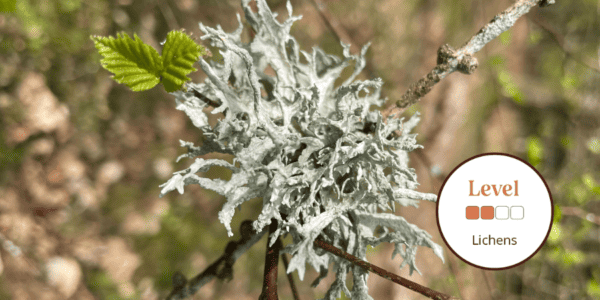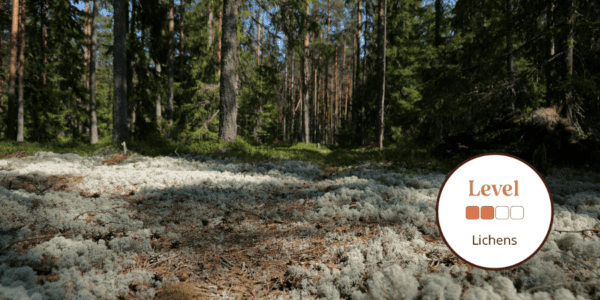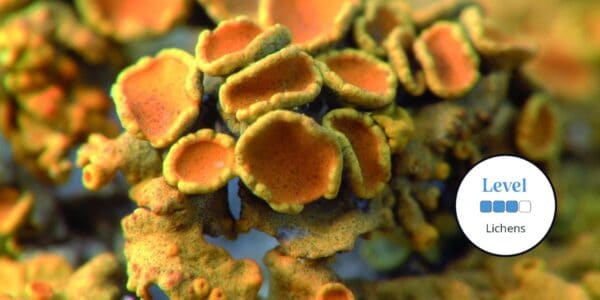This beginner course will introduce you to the wonderful world of lichens. You will look at what exactly a lichen is, how they reproduce, interact with their environment, indicate levels of air pollution, and much more.
You will also build skills in identifying lichens and become familiar with the terminology used and where to find them out in the field. If you’ve always had more questions than answers about this fascinating lifeform, then this is the course for you.
What will be covered in this course?
- What a lichen is
- Lichen biology
- Lichen ecology
- Terminology and methods used in identifying lichens in their natural habitat
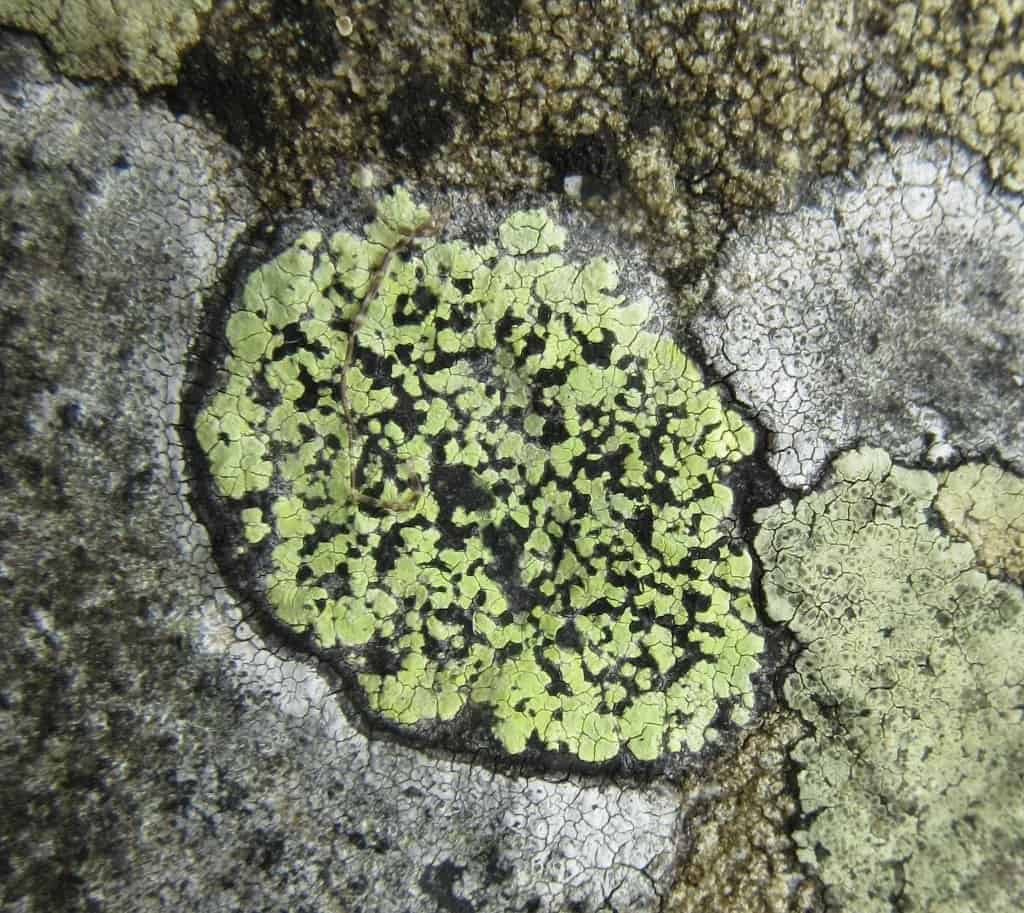
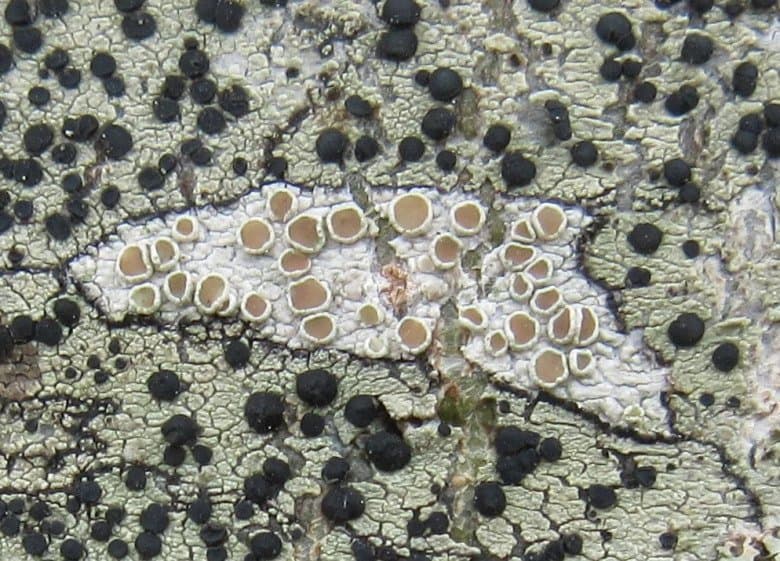
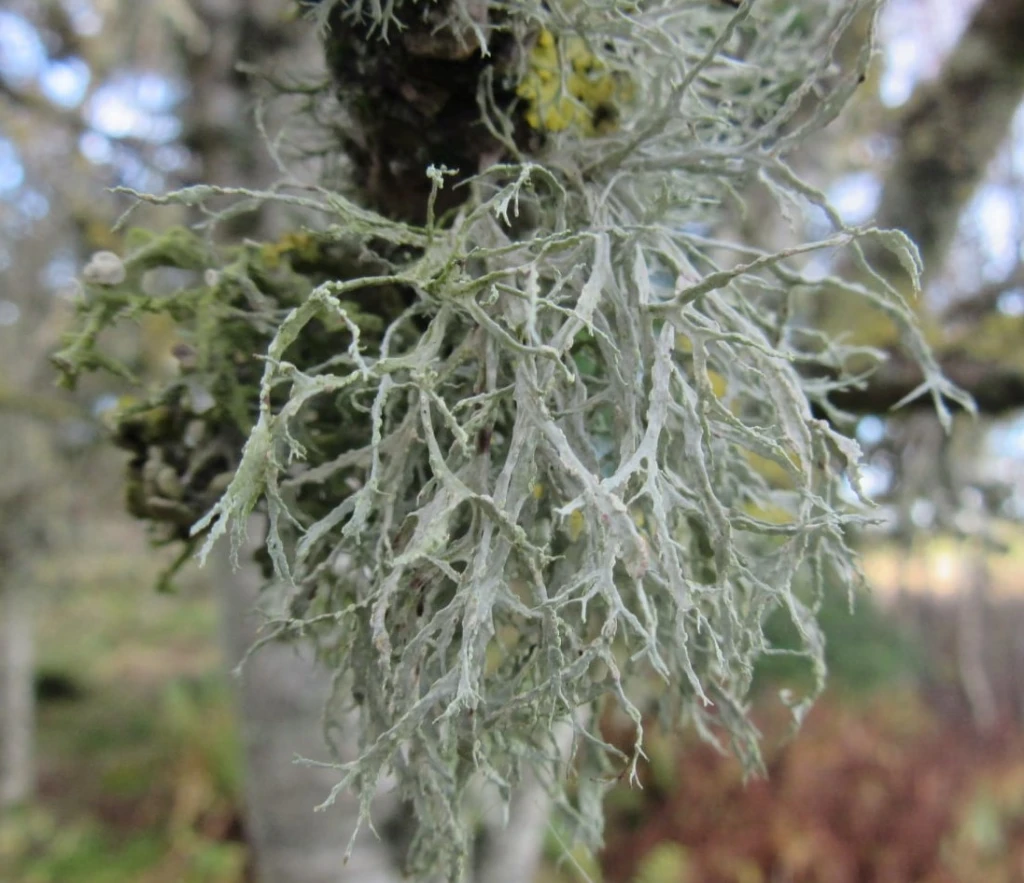
Read More
By the end of this course, you will:
- Understand the lichen symbiosis
- Be able to distinguish between the most important lichen growth forms
- Understand lichen reproduction and dispersal, lichen growth, water relations in lichens
- Understand the contribution of lichens to the nutrient cycle and their ecological interactions with other organisms, as well as lichens as indicators of air pollution
- Be familiar with the basic terminology used in, and methods for, identifying lichens
- Be able to identify which habitats and substrata are rich in lichens
Please note: a x10 hand lens is recommended for completing the course activities.
Who should attend? – This course is open to anybody who wants to learn more about lichens, including nature enthusiasts, students, rangers, environmental volunteers, and early career ecologists.
Knowledge level – Beginner. Level descriptors can be found on the following webpage: Framework and Course Level Descriptors
Prior knowledge – No existing knowledge or experience is needed for this course, just a willingness to contribute and learn.
Understand how our online courses are delivered here.
Live Webinar Information
There are 3 webinars for this course, taking place at the end of weeks one to three. Please see the listings below for the dates and time.
Please note – webinars will be recorded and uploaded to the virtual learning platform for learners unable to attend.
About the Tutor
Petra Vergunst
Petra Vergunst is a field ecologist specialised in lichens and bryophytes based in NE Scotland. To engage people with lichens and bryophytes and help with identification, she runs the website Scottish Lichens and facilitates the similarly-named Facebook group. Petra is passionate about biological recording as a means to monitor the quality of the environment and has done extensive surveys of woodland and forest, the heritage landscape and coastline of NE Scotland. An ecologist by training, she is interested in how land management, nutrient-enrichment and other forms of disturbance influence the presence (and absence), lifecycle and ecology of lichens.
Example Timetable
Timetable
Week 1: What is a lichen?
Self-study material available from start of course
Week 1 Live Webinar at the end of week 1
Week 2: Lichen biology
Self-study material available after week 1 webinar
Week 2 Live Webinar at the end of week 2
Week 3: Lichen ecology
Self-study material available after week 2 webinar
Week 3 Live webinar at the end of week 3
Week 4: Lichens in their natural habitats
Self-study material available after week 3 webinar
There will be no webinar this week allowing you to focus on the course activities
The final deadline to complete any outstanding activities and self-study components is 2 weeks after the end of week 4.
Time commitment: This course will require approximately 2-3 hours of your time each week. This includes covering course materials on our Moodle learning platform and the Zoom session.
What's Included
The course has been carefully created to help you continue to build and develop your knowledge as the course progresses. With content crafted to the online Moodle Platform and bespoke to the Field Studies Council.
The course includes:
- 45-minute interactive Zoom workshops to connect with the tutor and other participants
- Expert tuition for which the Field Studies Council is renowned
- Activities to work on independently in advance of each Zoom workshop
- Tailored course completion certificate
Once registered, you will follow well-illustrated, user-friendly ’books’ to pick up knowledge. Quizzes and skill checks will give you instant feedback on your learning. Forums give students the chance to interact with each other as well as a place to share work.
Bursaries and Subsidies
Student Discount
This course is eligible for a student discount. If you are a current student, please use discount code BioStudent20 at checkout for 20% off all Biodiversity courses.
Natural History Bursaries
There are a number of natural history bursaries available to help with the cost of your course. To find out if you and your chosen course are eligible, read more here.
Before You Attend
Accessing Your Course
- Once you sign up you’ll receive an email at least 24 hours in advance of the course opening with details of how to access our easy-to-use platform, Moodle.
- Moodle can be accessed through a browser or an app.
- Webinars are via Zoom so you won’t need any new software to attend.
Recommended Devices
It is recommended that you access your course through a PC or laptop. Please be aware that there will be reduced functionality if you decide to access the course through a tablet or smartphone. The Field Studies Council is unable to email content directly to you.
Recommended Equipment
You will need a x10 hand lens – for observing lichens out in the field.
The following are not mandatory but will enhance your learning experience:
Opportunities to attend this course
-
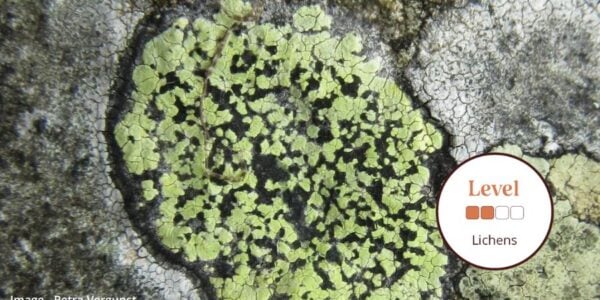
Tue 24, September 2024 - Tue 05, November 2024
The webinars will take place on Tuesdays 11.30 am - 12.15 pm on the following dates:
- Week 1: 1st October 2024
- Week 2: 8th October 2024
- Week 3: 15th October 2024
- Week 4: Assignment due 22nd October 2024
Progress Your Learning
This is a training course from the Field Studies Council, delivered by expert tutors with an approachable learning style. After attending this course, you may like to progress your learning with further relevant courses or branch out into other areas of natural history. The Field Studies Council offers both online and in person courses, so you can choose the learning style that suits you best.
The course gives you the opportunity to immerse yourself in a new subject and acquire novel skills. Our online portal gives you time to study at your own pace and fit the lessons around your own schedule.
If you have any questions about our online courses please check our Frequently Asked Questions or email [email protected].
Group Bookings Made Easy
If you have a group of 10 or more individuals wanting to complete one of our courses, our team are available to discuss your options – from discounts to private team courses. Find out more!
You can rest assured that the absolute best content from an expert in environmental education will be at your fingertips. In choosing a Field Studies Council course, you will be joining thousands of people who learn with us each year.

